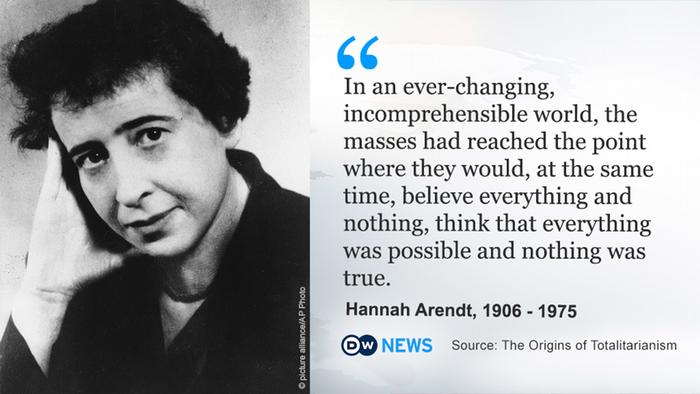What is the most common explanation given for the rise of populism today?
Economic insecurity
This region has been described as "the land of populism". The first wave of populist politics took place between the 1930s-60s, the second wave came in the 1990s, and a third phase (arguably) at the start of the 21st century. Two key drivers were anti-imperialism and opposition to free-market economics.
Latin America
This agrarian political movement in 19th century Russia saw the middle classes rise up against tsarism; translates to "people, folk".
Narodniks
A right-wing populist party in the UK led by Gerrard Batten.
UK Independence Party (UKIP)
During the 1960s and 1970s, this politician in the world's largest democracy relied on personalised appeals to the rural poor over the heads of traditional bosses within the Congress Party. She went on to win elections because of it.
Name the politician and country.
Indira Gandhi (India)
Populism as an ideology posits a struggle between two sides of society. The struggle is usually a response to a perceived crisis of democratic legitimacy. What are these two sides of society?
The people vs. the elite
The fear that populism is spreading across this region threatens to break up one of the world's most unique and integrated international organisations.
European Union
One of the most studied political movements in America, this party emerged around the same time as the agrarian movement in Russia.
US American People’s Party
This European party founded by comedian Beppe Grillo entered government in the 2018 general election.
Five Star Movement (Movimento 5 Stelle, Italy)
This former Chancellor of one of Europe's major powers (from 1998-2005) is remembered for his left-wing populist tactics at winning over the hearts and minds of the people.
Name the Chancellor and country.
Gerhard Schröder (Germany)
Give three reasons that might explain why Donald Trump won the 2016 election.
Simple message; Anti-establishment; Celebrity; His opponent; The role of the media; Misogyny; White working class; Personality and appeal
Out of all global regions, Asia-Pacific has the largest market share for Twitter (40%). Populists often us social media channels to appeal directly to the people. Name the South Asian leader who has been criticised for his populist politics and also has the second-highest number of followers on Twitter out of any politician worldwide.
Narendra Modi, India
This conservative American populist movement emerged in response to 21st century recession ("The Great Recession"). The movement called for reduced government spending, lower taxes, and opposed universal healthcare. Their name references a famous protest in 1773 by colonists who objected to British taxation without representation.
Tea Party movement
Not a party, but an international political movement against social and economic inequality. This movement has primarily targeted large corporations, the global financial system, and the top 1% income earners.
Occupy
The "machismo populism" of this South-East Asian leader has been accompanied by the mass killings of drug users and criminals in his country.
Rodrigo Duterte, Philippines
Scholars Ron Inglehart and Pippa Morris argue that these two male demographics in (western) society explain the rise of populism today.
1. Older white men
2. Less educated white men
Which region inspired this theory about populism:
Rapid industrialisation of a society leads to major economic and social changes. In new post-industrialised societies, charismatic leaders emerge and try to take control of the material resources that society produces before they are sold out. They mobilise the people, inspiring new forms of social life, winning the hearts and minds everywhere.
Latin America (Argentina)
This Argentinian president was in power from 1946-1955 and won the support of urban workers through the promise of numerous economic benefits, the nationalisation of major corporations, and the incorporation of trade unions into the government. He was the only Argentinian elected as president 3 times, and the political legacy of his wife has been written into popular culture.
Juan Perón
This Venezuelan socialist party was founded in 1997 but has fractured and weakened over time due to political restructuring, the death of its leader, a poor economy, and falling oil prices.
Name the party & leader.
Fifth Republic Movement (Hugo Chávez)
This politician and current prime minister is the leader of the Fidesz party is staunchly anti-immigration.
Name the politician and country.
Viktor Orbán, Hungary
! BONUS !
What is the "horseshoe theory" of politics?
The horseshoe theory asserts that the far left and the far right, rather than being at opposite and opposing ends of a linear political continuum, in fact closely resemble one another. Right and left starting to converge on each other as they become more radical.

Which region inspired this theory about populism:
Globalisation creates economic winners and losers, and changes social values. Economic losers with traditional social values resist globalisation, become disillusioned with the pace of change, and become more open and vulnerable to radical populist parties (right or left wing) that emphasise immigration and family values, inequality, and the need for economic redistribution.
Europe
Name the German-born American thinker who's work on totalitarianism led her to theorise that totalitarian movements start out as mass (populist) movements. She believed that populism aims its propaganda toward voters who don’t feel represented in the established political system. These are voters who are ignored and labelled as apolitical by the other established political parties. Further, populists gather masses without any concrete political programs. Instead they gravitate around broad slogans, based on racial or class ideologies.
 Hannah Arendt
Hannah Arendt
France's National Front party, led by Marine Le Pen, just changed it's name this year in a bid to improve its image and build alliances with other parties. What is their new name?
National Rally (Rassemblement National)
These two American presidents are sometimes compared on the basis of their populist agendas. One is a wealthy real estate developer known for his bombast, and has styled himself as a man of the people. The other was a wealthy slaveholding plantation owner known for his bombast, and styled himself as a man of the people.
Donald Trump and Andrew Jackson